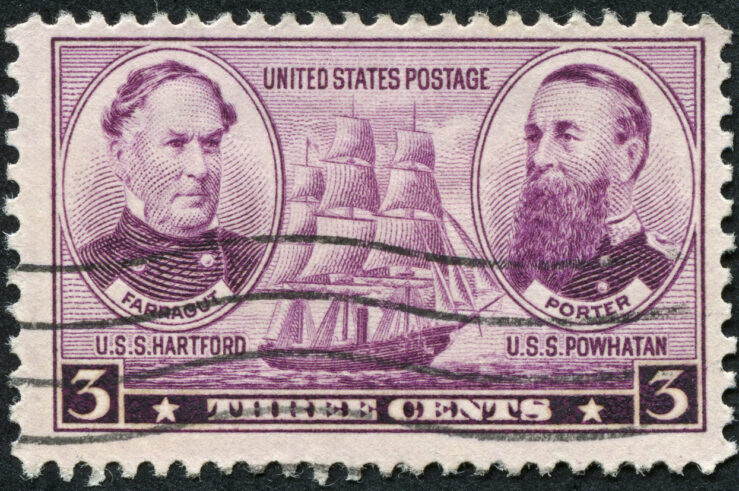Showing results for: “sirius xm merger”
FTC Biweekly UMC Roundup – 88 mph Edition
We’re back for another biweekly roundup – and what a biweekly it’s been! The JCPA rode, died, and rides again. Yet AICOA is AWOL. FTC Chair Lina Khan went to Congress and back to (Fordham) law school, making waves wherever she went. DOJ added to the agencies’ roster of recently lost cases. And the FTC ... FTC Biweekly UMC Roundup – 88 mph Edition
Damn the Economics, Full Speed Ahead!
A White House administration typically announces major new antitrust initiatives in the fall and spring, and this year is no exception. Senior Biden administration officials kicked off the fall season at Fordham Law School (more on that below) by shedding additional light on their plans to expand the accepted scope of antitrust enforcement. Their aggressive ... Damn the Economics, Full Speed Ahead!
FTC Biweekly UMC Roundup – Reform Dies in Committee Edition
Welcome back to the FTC UMC Roundup! The Senate is back in session and bills are dying. FTC is holding hearings and faith in the agency is dying. The more things change the more they stay the same. Which is a fancy way of saying that despite all the talk of change, little change seems ... FTC Biweekly UMC Roundup – Reform Dies in Committee Edition
The FTC’s Pre-Acquisition Review Requirement for All Meta Deals: Hyper-Regulatory, Anti-Free Market, Anti-Rule of Law, and Anti-Consumer
The Federal Trade Commission (FTC) wants to review in advance all future acquisitions by Facebook parent Meta Platforms. According to a Sept. 2 Bloomberg report, in connection with its challenge to Meta’s acquisition of fitness-app maker Within Unlimited, the commission “has asked its in-house court to force both Meta and [Meta CEO Mark] Zuckerberg to ... The FTC’s Pre-Acquisition Review Requirement for All Meta Deals: Hyper-Regulatory, Anti-Free Market, Anti-Rule of Law, and Anti-Consumer
What Antitrust Scholars Can Learn from the Bronze Age Collapse
There is an emerging debate regarding whether complexity theory—which, among other things, draws lessons about uncertainty and non-linearity from the natural sciences—should make inroads into antitrust (see, e.g., Nicolas Petit and Thibault Schrepel, 2022). Of course, one might also say that antitrust is already quite late to the party. Since the 1990s, complexity theory has ... What Antitrust Scholars Can Learn from the Bronze Age Collapse
Are All Mergers Inherently Anticompetitive?
A recent viral video captures a prevailing sentiment in certain corners of social media, and among some competition scholars, about how mergers supposedly work in the real world: firms start competing on price, one firm loses out, that firm agrees to sell itself to the other firm and, finally, prices are jacked up.(Warning: Keep the ... Are All Mergers Inherently Anticompetitive?
FTC Biweekly Roundup – A Change in Title Edition
You’d think things would be calm during these last weeks of August – the Senate in recess, folks wrapping up summer vacations or seeing their kids back off to school, and the big news being that coming out of the White House instead of Congress or the agencies. You’d think. We don’t have a single ... FTC Biweekly Roundup – A Change in Title Edition
FTC UMC Roundup – A Quantum of Wonder Edition
Early August is an unpredictable time in the policy world. With Congress about to go on recess, one never knows if there will be a mad rush to get something done, or what that something may be. And it is, for many, a month of vacations and light schedules. Short staffing may delay work or ... FTC UMC Roundup – A Quantum of Wonder Edition
Antitrust Populists Don’t Seem to Care About the Poor
Antitrust populists like Biden White House official Tim Wu and author Matt Stoller decry the political influence of large firms. But instead of advocating for policies that tackle this political influence directly, they seek reforms to antitrust enforcement that aim to limit the economic advantages of these firms, believing that will translate into political enfeeblement. ... Antitrust Populists Don’t Seem to Care About the Poor
The Catch-22 of AICOA’s Guidelines
If S.2992—the American Innovation and Choice Online Act or AICOA—were to become law, it would be, at the very least, an incomplete law. By design—and not for good reason, but for political expediency—AICOA is riddled with intentional uncertainty. In theory, the law’s glaring definitional deficiencies are meant to be rectified by “expert” agencies (i.e., the ... The Catch-22 of AICOA’s Guidelines
The Cracked Mirror of Monopoly-Monopsony Symmetry
Slow wage growth and rising inequality over the past few decades have pushed economists more and more toward the study of monopsony power—particularly firms’ monopsony power over workers. Antitrust policy has taken notice. For example, when the Federal Trade Commission (FTC) and U.S. Justice Department (DOJ) initiated the process of updating their merger guidelines, their ... The Cracked Mirror of Monopoly-Monopsony Symmetry
Pushing the Limits? A Primer on FTC Competition Rulemaking
Since its founding in 1914, the Federal Trade Commission (FTC) has held a unique and multifaceted role in the U.S. administrative state and the economy. It possesses powerful investigative and information-gathering powers, including through compulsory processes; a multi-layered administrative-adjudication process to prosecute “unfair methods of competition (UMC)” (and later, “unfair and deceptive acts and practices ... Pushing the Limits? A Primer on FTC Competition Rulemaking











